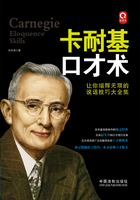"The bottom rail is on top" was a phrase which had flashed throughout the late Confederate States.It had been coined by the Negroes in 1867 to express their view of the situation, but its aptness had been recognized by all.After ten years of social and economic revolution, however, it was not so clear that the phrase of 1867 correctly described the new situation."The white man made free" would have been a more accurate epitome, for the white man had been able, in spite of his temporary disabilities, to compete with the Negro in all industries.
It will be remembered that the Negro districts were least exposed to the destruction of war.The well-managed plantation, lying near the highways of commerce, with its division of labor, nearly or quite self-sufficing, was the bulwark of the Confederacy.When the fighting ended, an industrial revolution began in these untouched parts of the Black Belt.The problem of free Negro labor now appeared.During the year 1865, no general plan for a labor system was formulated except by the Freedmen's Bureau.That, however, was not a success.There were all sorts of makeshifts, such as cash wages, deferred wages, cooperation, even sharing of expense and product, and contracts, either oral or written.
The employers showed a disposition to treat the Negro family as a unit in making contracts for labor, wages, food, clothes, and care.* In general these early arrangements were made to transform slavery with its mutual duties and obligations into a free labor system with wages and "privileges." The "privileges" of slavery could not be destroyed; in fact, they have never yet been destroyed in numerous places.Curious demands were made by the Negroes:
here, farm bells must not ring; there, overseers or managers must be done away with; in some places plantation courts were to settle matters of work, rent, and conduct; elsewhere, agreements were made that on Saturday the laborer should be permitted to go to town and, perhaps, ride a mule or horse.In South Carolina the Sea Island Negroes demanded that in laying out work the old "tasks" or "stints" of slavery days be retained as the standard.The farming districts at the edge of the Black Belt, where the races were about equal in numbers, already had a kind of "share system," and in these sections the economic chaos after the war was not so complete.The former owners worked in the field with their ex-slaves and thus provided steady employment for many.
Farms were rented for a fixed sum of money, or for a part of the crop, or on "shares."* J.D.B.De Bow, the economist, testified before the Joint Committee on Reconstruction that, if the Negro would work, free labor would be better for the planters than slave labor.He called attention to the fact, however, that Negro women showed a desire to avoid field labor, and there is also evidence to show that they objected to domestic service and other menial work.
The white districts, which had previously fought a losing competition with the efficiently managed and inexpensive slave labor of the Black Belt, were affected most disastrously by war and its aftermath.They were distant from transportation lines and markets; they employed poor farming methods; they had no fertilizers; they raised no staple crops on their infertile land; and in addition they now had to face the destitution that follows fighting.Yet these regions had formerly been almost self-supporting, although the farms were small and no elaborate labor system had been developed.In the planting districts where the owner was land-poor, he made an attempt to bring in Northern capital and Northern or foreign labor.In the belief that the Negroes would work better for a Northern man, every planter who could do so secured a Northern partner or manager, frequently a soldier.Nevertheless these imported managers nearly always failed because they did not understand cotton, rice, or sugar planting, and because they were either too severe or too easy upon the blacks.
No Northern labor was to be had, and the South could not retain even all its own native whites.Union soldiers and others seeking to better their prospects moved west and northwest to fill the newly opened lands, while the Confederates, kept out of the homestead region by the test oath, swarmed into Texas, which owned its own public lands, or went North to other occupations.
Nor could the desperate planters hire foreign immigrants.Several states, among them South Carolina, Alabama, and Louisiana, advertised for laborers and established labor bureaus, but without avail.The Negro politicians in 1867declared themselves opposed to all movements to foster immigration.So in the Black Belt the Negro had, for forty years, a monopoly of farm labor.
The share system of tenantry, with its attendant evils of credit and crop lien, was soon established in the Southern States, mainly in the Black Belt, but to some extent also in the white districts.The landlord furnished land, house, fuel, water, and all or a part of the seed, fertilizer, farm implements, and farm animals.In return he received a "half," or a "third and fourth," his share depending upon how much he had furnished.The best class of tenants would rent for cash or a fixed rental, the poorest laborers would work for wages only.















